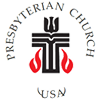We gathered around the table, and we prayed. But this last Sunday felt & was a little different than usual. The week had been heavy. The day in which we celebrated Valentine’s Day & Ash Wednesday (a rather beautiful pairing considering God is love) — after many had received the imposition of ashes in a noontime service, we heard the news of (yet another) school shooting. And that thrusts us into an understanding of wilderness and mortality that we’d prefer not have. So instead of the typical checking-in of the homework assignment (which last week was to consider what God might be leading you to do – or not do – during Lent, considering seriously what your Lenten practice will be) after a few comments from me — comments that included naming the hard week, not doing the typical frame, and that we’d open for larger discussion to consider — scripture, the week, and possibly Lent — realizing the conversation might not necessarily go there — we turned to scripture,
“Yet even now,” declares the LORD, “return to me with all your heart, with fasting, with weeping, and with mourning; and rend your hearts and not your garments.” Return to the LORD your God, for he is gracious and merciful, slow to anger, and abounding in steadfast love; and he relents over disaster. Joel 2:12-13 (English Standard Version)
And what struck me the most in a conversation that engaged much — including guns, gun control, safety, society, culture, and more — was that many heard REND, and many even said that part 1 of rending was easy but that part 2 was hard — the action element (solving element perhaps). I silently wondered then, and ask in writing now, do we know what it is to rend our hearts? I know what it is to rend my garments, to rip them apart in lament — but must I rend my very heart? How do I do that, how do I violently tear my heart into at least 2 pieces? Does it mean I am honest with how the brokenness of our world, breaks me? Does it mean I force myself to not ignore that which I would prefer to ignore – injustice, oppression, hunger, corruption, violence, war, abuse, bullying, gossip…? Does it mean I choose to #love knowing it will break my heart, knowing that when I #love only God will ever be able to repair the damage done by (well-meaning) people in this world – this side of heaven?
I don’t think rending is quite so simple…but maybe that’s just me (I can own that — it’s ok). But this theme of rending and returning is important. And as the brokenness of our world breaks us (and it does) the invitation is to rend and return — and it is there I believe we’ll find God speaking. The invitation of the wilderness might be to better identify the (LYING) voice of the accuser/Satan/tempter in order to recognize God’s voice — to hear God speaking. Don’t you find it’s in the wilderness, where we discover our ears, our eyes, our spirits, our minds, and even our literal hands are open? Wilderness is a season of preparation, and that is to say Lent is a season of preparation for what is yet to come — a season that requires us to let go of some things, to add some things, and to be (more) alert & aware of the surroundings around us.
The homework for this week (in addition I would say to continuing to ponder Lent…and following our Lenten resource HERE ) is to write a Lenten prayer (for you). An example could be, God please help me to live with hands open that I might receive what You give and I might give others from what You have given me. It might be, Help. Perhaps it is breathing, and offering Be Still. Prayer is where we talk, it’s also where we listen to God, let the prayer perhaps lead you (and us) to a posture of being able to better hear God speaking — wouldn’t that be beautiful, and worth a wilderness walk?
Praying through the wilderness,
Rev. Sabrina Slater
